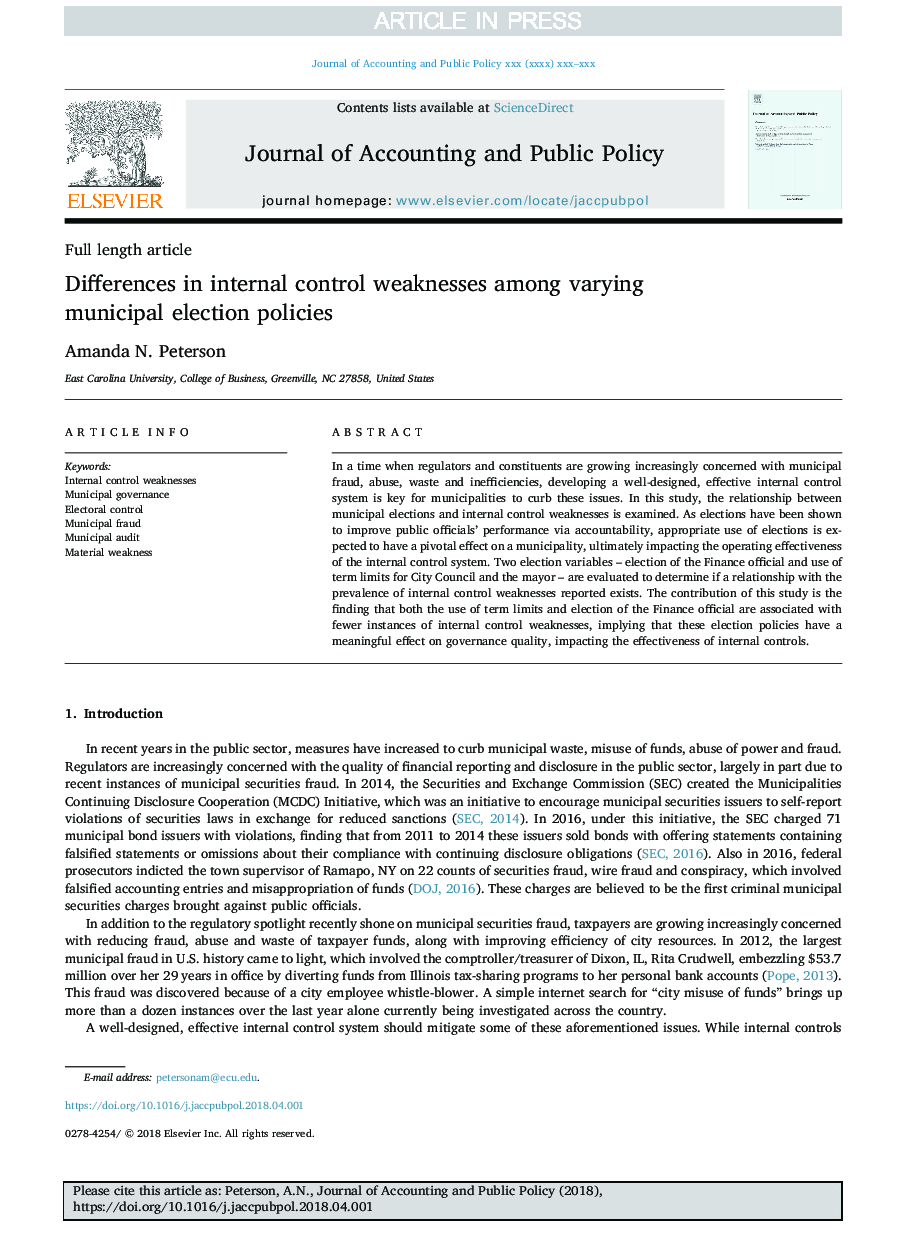| Article ID | Journal | Published Year | Pages | File Type |
|---|---|---|---|---|
| 7415775 | Journal of Accounting and Public Policy | 2018 | 16 Pages |
Abstract
In a time when regulators and constituents are growing increasingly concerned with municipal fraud, abuse, waste and inefficiencies, developing a well-designed, effective internal control system is key for municipalities to curb these issues. In this study, the relationship between municipal elections and internal control weaknesses is examined. As elections have been shown to improve public officials' performance via accountability, appropriate use of elections is expected to have a pivotal effect on a municipality, ultimately impacting the operating effectiveness of the internal control system. Two election variables - election of the Finance official and use of term limits for City Council and the mayor - are evaluated to determine if a relationship with the prevalence of internal control weaknesses reported exists. The contribution of this study is the finding that both the use of term limits and election of the Finance official are associated with fewer instances of internal control weaknesses, implying that these election policies have a meaningful effect on governance quality, impacting the effectiveness of internal controls.
Related Topics
Social Sciences and Humanities
Business, Management and Accounting
Accounting
Authors
Amanda N. Peterson,
